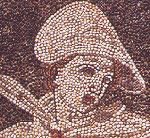Keep Moving
When I asked for great plot stories or page turners from my readers, I purposefully meant to ignore certain other aspects of great stories, such as characterization, style, themes and premises, and so on. I didn't actually want great stories, but merely fun, exciting ones. Why? Because I thought that by reading a series of very basic page-turners in quick succession, I might see more clearly what makes a plot tick.
I went into this exercise assuming that even basic novels would employ techniques that the masters used (knowing that they might do so less artfully, of course). I assumed this because I know that A is A, which is to say that stories work as they do because of the nature of the reader and the medium.
Happily, now five novels into my stack, my bet may be paying dividends. I may have just discovered an indispensable technique for making a page-turner, well, a page-turner. Every exciting story appears to use it. Even Victor Hugo uses it.
I'm not going to try to teach it to you, because I can't. Suffice to say that it's about always keeping things moving. Even the descriptions have to feel like they're moving. Nothing ever stands still (or if it does, the writer uses such a moment for a specific effect).
Yes, yes, I know. Every one who has ever read a "how-to" book on writing knows about this technique already. Sure, I've read the same books. So why didn't I get it the first, second, or even third time that I read about it?
I suppose I didn't fully understand its value until I could really see it done so many different ways, by so many different authors. Or perhaps I only now need it enough for my mind to grapple with it and integrate it -- that is, to value it. I don't know why I couldn't see it clearly until now, except to say that now I can't not see it.
(There's something to be said here about the process of learning. It's definitely iterative. You have to cover the same ground over and over again until the pieces start to fit. But since I'm no education scientist, I'll let someone else dwell on this interesting epistemological issue.)
I have about ten more of these novels to read. What more will I learn? Well, I'm glad you asked. I'll answer that question in my next post.
Labels: art of writing


<< Home